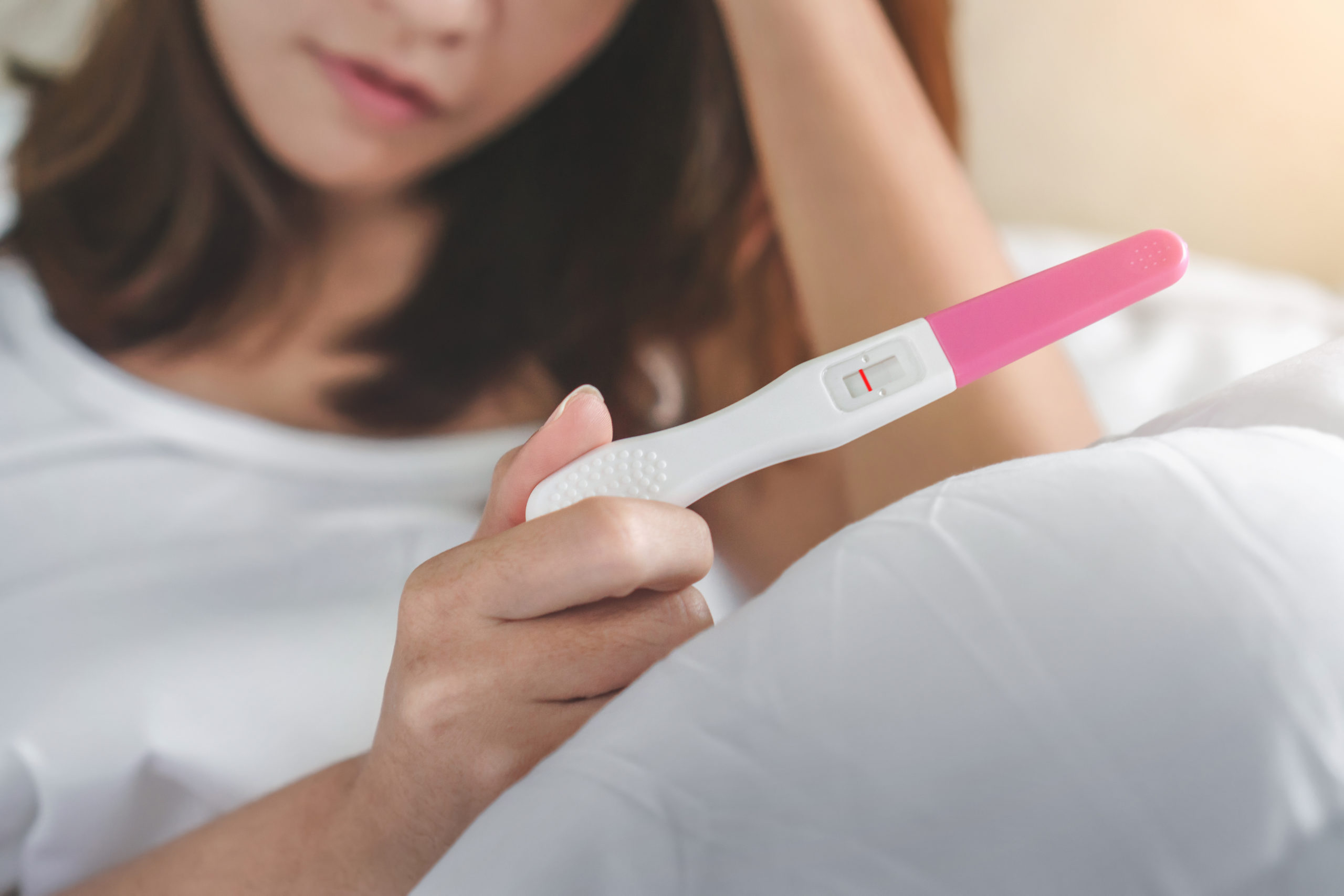By: Vaishnavi Raju | Date: December 9, 2020
Female Infertility – Causes, Tests And Treatments
"Infertility can take a toll on one’s life. It can even hamper your relationship with your spouse. We bring you all the answers related to female infertility causes and its treatment".

Trying to conceive and start a family is an exciting time for couples filled with joy and hope. But, as the pregnancy tests keep showing a negative result month-after-month, distress and anxiety can replace this hope.
For woman, infertility can often feel like a hopeless diagnosis. One that makes you feel like less of a woman and even stigmatizing, because your body is not functioning as it should.
Today science has made advances offering advanced female infertility treatments and ways to restore female fertility. We at Hera have spoken to our experts to bring you all the answers you are looking for.
What Is Female Infertility?
Infertility is the failure to conceive after 12 months of regular unprotected sexual intercourse. This period is reduced to 6 months if the woman is over 35 years. Recurrent miscarriage or the failure to carry a pregnancy to term is also called infertility.
Female infertility reasons include:
- Advanced maternal age
- Physical problems including damage to the fallopian tubes or uterus,
- Hormonal problems
- Ovulation disorders including PCOS
- Problems with the cervix
- Lifestyle or environmental factors including smoking and excessive alcohol
- Being overweight or underweight
- Sexually transmitted diseases
It is important to remember that infertility is more than a medical problem. Those struggling to conceive also have to deal with emotional, psychological and financial stress because of their condition.
What Are Female Infertility Tests?
There are various types of female infertility tests that a medical practitioner will ask women to take.
During the initial visits to a specialist, the doctor will evaluate her and her partner. This is done through a basic physical exam and a medical assessment. The assessment will include basic questions and blood tests to understand her medical history. Based on the information collected, the doctor will recommend diagnostic tests to discover female infertility causes.
When looking for female infertility causes, doctors will test the female hormone system, ovarian reserve, pelvis, vagina and cervix for any abnormalities. Some common female infertility tests include:
Ultrasound Or Transvaginal Ultrasound
An ultrasound uses sound waves to create images of the uterus, ovaries, endometrium, and ovarian follicles. For female infertility tests ultrasound test is done through the abdomen or through a probe placed in the vagina. The images taken allow the doctor to check the uterus and ovaries for any abnormalities such as fibroids and ovarian cysts.
It gives a clear indication of the position and size of the uterus,fallopian tubes and ovaries. It also checks the presence or absence of follicles, their size, presence of fluids and thickness of the endometrium. These results are useful for diagnosing female infertility causes.
Hysterosalpingogram
A Hysterosalpingogram is an X-ray procedure to check the shape of the uterine cavity and if the fallopian tubes are open. This test is vital in female infertility treatment to investigate fallopian tube blockage. A catheter is inserted through the vagina and liquid containing iodine (contrast) is injected. This contrast liquid fills the uterus and the tubes. It gives the doctors a view of any blockages in the tubes.
Laparoscopy
A laparoscopy is a surgical procedure where a slender lighted tube (laparoscope) is inserted into the abdomen. The procedure is done through a tinny incision near the belly button. Laparoscopy can check the pelvic cavity for endometriosis, pelvic adhesions, and abnormal growths.
Hysteroscopy
A hysteroscopy is also a female infertility treatment surgical procedure. Here, a small lighted telescope is passed through the vagina and into the uterus. Hysteroscopy can detect the existence of polyps, fibroids, scar tissues and other abnormalities.
Sonohysterography
Sonohysterography is a transvaginal ultrasound. It is done by filling the uterus with saline. This procedure helps diagnose female infertility causes by detecting intrauterine problems such as endometrial polyps and fibroids.
Ovarian Reserve Testing
A simple blood test for follicle-stimulating hormone (FSH) is the most common test to estimate the ovarian reserve or the egg count. In this test blood is drawn on cycle day 3.
Miscellaneous Blood Tests:
The doctor may recommend various blood tests such as
Thyroid-stimulating hormone (TSH) – To identify thyroid disorders which may cause problems with fertility, menstrual irregularities, and repeated miscarriages.
Hormone blood tests – The doctor may recommend blood tests, such as estradiol, antimüllerian hormone (AMH), and inhibin-B. These tests evaluate if a woman can produce an egg, their quality and the ovaries response to hormones.
Hera Pro Tip: A male partner semen analysis test is necessary, as it will provide important information about the number, movement, and shape of the sperm..- HERA
Female Infertility Treatment
Female infertility treatment depends on the diagnosis, age, and period of infertility. The women’s preference also plays a role in female infertility treatment. It can comprise medication, surgery, advanced, or a combination of these.
Fertility Drugs
Fertility drugs are used to regulate or stimulate the woman’s ovulation cycle. Fertility drugs that are commonly used include:
Clomiphene Citrate.
Clomiphene (Clomid) is an oral medication that stimulates ovulation. It is taken at the beginning of the menstrual cycle. The medication triggers the pituitary gland to release more FSH and LH. This causes the body to produce hormones that help the eggs mature in the ovaries.
Letrozole.
Similar to Clomid, Letrozole is an oral medication. It decreases the amount of estrogen a woman makes and induces ovulation.
Gonadotropins.
Gonadotropins are hormones that are injected to stimulate the ovary into producing multiple eggs. These injections are usually taken during the early stage of the menstrual cycle for 7 to 12 days.
Metformin.
This hormone is used when infertility is caused due to insulin resistance. It is common in women diagnosed with polycystic ovarian syndrome.
Bromocriptine.
Bromocriptine pills are taken orally to treat abnormally high levels of prolactin. Excess of this hormone hinders with ovulation.
Fertility Restoration
Some female infertility causes can be corrected by surgery and can help to restore your fertility
Laparoscopic or Hysteroscopic Surgery.
These are surgeries correct abnormalities that hinder a woman’s ability to get pregnant. It includes removal of endometrial polyps, or the removal of pelvic and uterine adhesions.
Tubal Surgeries.
Tubal surgeries help unblock fallopian tube blockage. Tubal procedures are done either through open abdominal surgery or using laparoscopy. It depends on the location and extent of the blockage.
Reproductive Assistance
The two most popular used methods of reproductive assistance used for female infertility treatment include –
1. Intrauterine Insemination.
In this procedure, when a woman nears her ovulation cycle, healthy sperm are placed inside the woman’s uterus.
2. Assisted Reproductive Technology.
In this procedure, mature eggs are retrieved from the woman. They are then fertilized with her partner’s sperm to create embryos. Finally, the embryo is returned to the uterus to develop. IVF (in-vitro fertilization) is the most common type of assisted reproductive technology.
The bottom line
Female infertility can be very distressing for women who are trying to conceive. However, in recent times medical science has made advances to treat infertility and even restore fertility for women.
To know more about female infertility causes and their treatments, keep reading the Hera blog.






